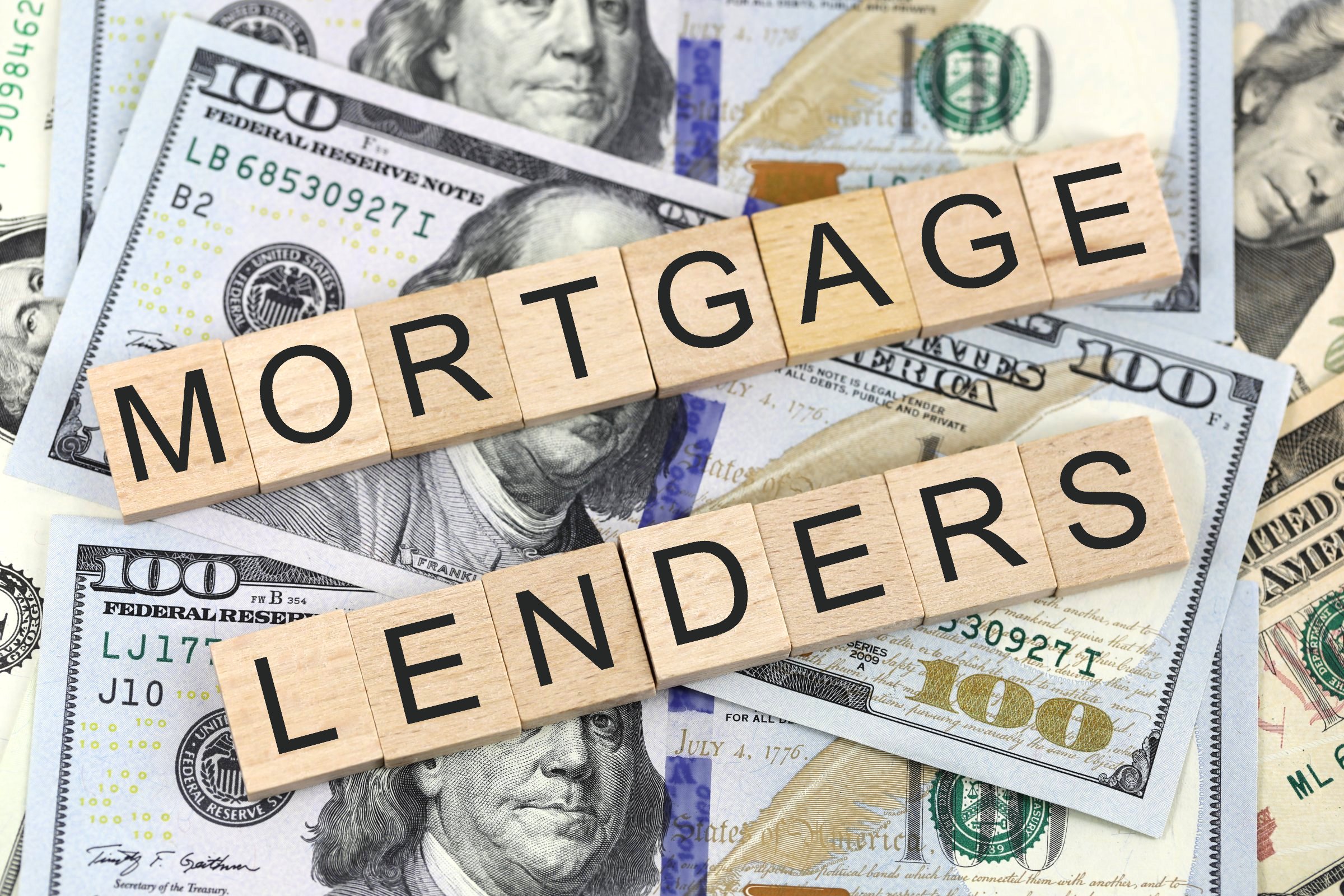Everything About Mortgage Lending: Key Insights for Homebuyers and Investors
Mortgage lending is an intricate landscape, offering different loan kinds customized to diverse customer demands. Understanding the subtleties of traditional, FHA, VA, and USDA loans can significantly affect buyers and capitalists alike. Additionally, credit rating play a crucial duty in protecting favorable rates of interest. As the home mortgage application procedure unravels, numerous vital variables enter play, affecting both approval and terms. What are the vital steps and techniques to navigate this intricate procedure effectively?
Understanding Various Sorts Of Mortgage Loans
Recognizing the different types of mortgage loans is crucial for potential homebuyers, as each alternative deals with different economic circumstances and needs. Traditional fundings, generally supplied by personal lenders, call for a higher credit report and often include a down payment of a minimum of 20%. On the other hand, FHA lendings are government-backed and made for newbie buyers, allowing reduced credit history and smaller sized deposits. VA car loans, available to professionals and energetic military participants, offer desirable terms and no deposit requirement. Furthermore, USDA lendings sustain rural buyers with low to moderate incomes, offering absolutely no deposit choices. Fixed-rate home mortgages maintain consistent regular monthly settlements over the funding term, while variable-rate mortgages start with lower rates that can change. By recognizing these differences, homebuyers can make informed decisions tailored to their monetary conditions and long-term goals. Choosing the best home loan kind is a substantial action in the home-buying procedure.
The Importance of Credit Rating in Mortgage Approval
Credit rating play an essential role in the mortgage approval process, working as an essential sign of a consumer's creditworthiness. A higher credit report can bring about a lot more positive rate of interest, significantly affecting the general expense of a home loan. Comprehending the basics of credit report and exploring ways to boost them can greatly benefit prospective homebuyers.

Credit History Essentials
A solid credit history plays a crucial role in the home mortgage authorization process, influencing loan providers' perceptions of a debtor's dependability. Debt ratings, normally ranging from 300 to 850, mirror an individual's credit reliability based on their financial history, consisting of settlement history, debt application, size of credit rating, kinds of charge account, and recent questions. Lenders evaluate these ratings to assess the threat linked with offering money. Generally, a higher credit scores score suggests lower risk, leading to a smoother authorization procedure. Homebuyers and capitalists must routinely examine their credit score reports for mistakes and take steps to boost their scores, such as paying bills promptly and minimizing exceptional debts. A strong credit report is a vital possession in protecting beneficial home mortgage terms.
Impact on Rates Of Interest
Rates of interest on home loans are considerably affected by the consumer's credit history, which offers as a vital indication of monetary integrity. Lenders assess credit rating ratings to examine the threat related to expanding a finance. Private Mortgage Lenders Savannah GA. Higher credit rating generally lead to reduced rate of interest, as they recommend that borrowers are most likely to repay their financial debts. Alternatively, reduced credit history may result in higher prices, reflecting the boosted danger regarded by lenders. This partnership emphasizes the relevance of maintaining a solid credit profile for prospective customers. Recognizing how credit report ratings impact rate of interest prices can empower buyers and capitalists to make enlightened choices, possibly saving them substantial quantities over the life of their home loan

Improving Your Credit History
Homebuyers crazy about securing desirable home mortgage terms should identify the essential duty of credit rating in the approval process. A greater credit rating commonly leads to lower rate of interest, which can considerably minimize the total price of a home financing. Lenders assess credit report to determine a candidate's economic dependability, influencing their choice to approve or refute a mortgage application. To enhance their ratings, prospective debtors need to concentrate on prompt bill repayments, lowering arrearages, and staying clear of brand-new credit rating questions. Consistently examining credit reports for mistakes can also help maintain precision. By taking these steps, property buyers can enhance their creditworthiness, inevitably enhancing their opportunities of getting a home mortgage with desirable conditions.
Key Elements Influencing Rate Of Interest
How do various economic elements form the landscape of home loan rate of interest? A number of crucial elements play a vital function in figuring out these rates. The Federal Get's financial plan substantially influences passion prices; when the Fed raises or reduces benchmark rates, mortgage prices commonly do the same. Furthermore, rising cost of living trends influence the acquiring power of customers, leading lenders to adjust prices as necessary. Economic growth signs, such as employment prices and GDP development, also affect rate of interest; a robust economy often leads to higher prices due to enhanced need for finances. The bond market offers as an important benchmark; when bond returns climb, home loan prices often tend to raise. Finally, private customer aspects, consisting of credit report and debt-to-income ratio, can influence the certain rate used (Private Mortgage Lenders Savannah GA). Understanding these dynamics aids buyers and financiers make notified decisions in the home loan market
The Mortgage Application Process Discussed
What actions are associated with safeguarding a mortgage? The mortgage application procedure starts with the consumer celebration important source essential documents, such as revenue declarations, tax obligation returns, and credit report history. Next, the borrower picks a loan provider and sends a formal application, supplying all required info. The lending institution after that carries out a credit score check and evaluates the debtor's financial stability.Following this, the lender will certainly carry out an evaluation of the home to identify its market price. When the residential or Clicking Here commercial property is evaluated, the lender evaluates the application, including the borrower's economic history and the appraisal results, to determine whether to approve or reject the financing. If approved, the borrower receives a lending quote outlining the terms and prices connected with the mortgage.Finally, the borrower testimonials and indicators the closing documents, formally safeguarding the home mortgage. Understanding this process is vital for potential house owners as they navigate the intricacies of mortgage financing.
Tips for First-Time Homebuyers
First-time buyers encounter a distinct set of obstacles when entering the genuine estate market. Comprehending the different types of mortgages readily available and successfully budgeting for their purchase are crucial action in the homebuying journey - Private Mortgage Lenders Savannah GA. By equipping themselves with this knowledge, they can make enlightened decisions that align with their economic objectives
Understanding Home Loan Kinds
Navigating the world of home loan kinds can be frightening for those getting in the housing market for the very first time. Understanding the numerous alternatives is crucial for newbie homebuyers. Fixed-rate home mortgages use predictable regular monthly settlements, making budgeting less complex. Conversely, variable-rate mortgages (ARMs) normally begin with lower rates that can rise and fall in time, which may be enticing however carries dangers. Government-backed car loans, such as FHA and VA financings, give extra support for eligible purchasers, typically requiring lower down repayments. Furthermore, new homebuyers might explore standard finances that comply with details standards. Each home loan kind has distinct benefits and disadvantages, so it is necessary for beginners to research extensively and assess their lasting economic objectives before deciding.
Budgeting for Your Purchase
When beginning on the journey of homeownership, efficient budgeting is essential for possible buyers to ensure monetary security throughout the process. New property buyers should start by examining their earnings and costs, ensuring they assign funds for a deposit, shutting costs, and relocating expenditures. Developing a regular monthly spending plan that consists of mortgage payments, real estate tax, insurance coverage, and upkeep costs is necessary. Customers must also consider prospective variations in rates of interest and market problems. Creating an emergency fund can supply a safety and security internet for unexpected expenditures. Furthermore, purchasers might benefit from getting in more tips here touch with economic consultants or making use of online budgeting tools to acquire a more clear understanding of their monetary circumstance. Cautious planning eventually brings about notified choices and a successful home acquisition.
Financing Options genuine Estate Investors
What funding alternatives are readily available to investor aiming to increase their portfolios? Investors can check out several avenues. Typical mortgages stay a preferred choice, commonly calling for a larger down payment and good credit score. Capitalists may take into consideration hard cash fundings, which are temporary fundings secured by genuine estate, offering quick accessibility to capital yet at higher rate of interest rates.Another option is personal funding, where investors can obtain from friends or household, often with more adaptable terms. For those seeking to finance several homes, profile car loans could be suitable, enabling numerous residential or commercial properties to be packed under one mortgage.Additionally, realty crowdfunding platforms have arised, enabling financiers to merge resources with others for building investments. Lastly, leveraging equity in existing buildings through cash-out refinancing can offer funds for brand-new financial investments. Each choice has its advantages and threats, requiring mindful factor to consider based upon specific investor objectives.
Frequently Asked Questions
What Are the Typical Closing Costs Connected With a Home loan?
Closing expenses normally consist of evaluation charges, title insurance policy, lawyer charges, and source fees. These costs normally range from 2% to 5% of the funding amount, impacting the overall financial dedication for the customer.
Just how Long Does It Take to Close on a Mortgage?
The duration to shut on a home mortgage normally varies from 30 to 45 days, depending upon different elements, including lending institution performance, paperwork completeness, and market conditions, which can significantly influence the total timeline.

Can I Refinance My Home Mortgage Later On?
Yes, re-financing a home loan later is feasible. Home owners usually seek re-financing to protect lower rate of interest, lower month-to-month repayments, or access home equity. They must think about involved costs and their monetary situation prior to proceeding.
What Takes place if I Miss a Home Loan Payment?
If a home mortgage payment is missed out on, the customer may deal with late charges, possible damage to their credit rating, and feasible foreclosure procedures. Lenders typically use moratorium, yet constant missed out on payments can cause major repercussions.
Exist Charges for Repaying My Home Loan Early?
Several lenders enforce early repayment charges for very early mortgage payback, possibly setting you back customers added fees. Nevertheless, terms differ considerably amongst lending institutions, so it is important for debtors to review their home loan contracts prior to making very early payments.